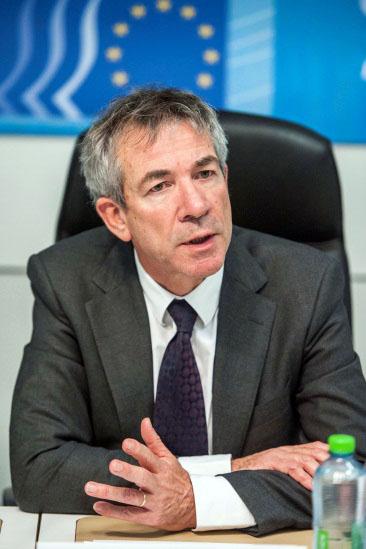
On 28-29 April I participated at the conference on ‘Algorithmic Law Design and Implementation’ held in Barcelona. It is good to be able to meet in person again and discuss and feel the excitement/positive vibration.
The conference programme was a very interesting experiment, highly interdisciplinary. Listening to presenters from different disciplines runs the risk that the presentations are only somewhat marginally relevant. This was not the case – in fact the main message we took home is that the topic of ‘law design’ needs more interdisciplinarity. Interdisciplinarity to better connect different approaches of capturing in IT the intrinsic nature of law and e.g. the responsible use of AI in law-design. The conference demonstrated the potential of proof systems in the correct development of legal software. The test case running through the Conference was Regulation 561/2006 of the European Parliament and the Council of European Union on ‘how long European truck drivers are allowed to drive in a row and how frequent they must rest’. It is extraordinary to see the complexity of the implementation in software of a few sentences in the Regulation. For information on the conference see here.
Our contribution, hybrid in delivery, approached ‘Drafting EU law in the era of AI and digitisation’ from different angles.
I was the lucky-one, being present in Barcelona live-on-stage, and kicking-off by explaining to the audience the ‘theory’ and ‘practice’ of law-making process in the EU, drawing attention to the imperative (and challenges) for its digital transformation and introducing LEOS, a Commission flagship open-source project, in its broader context, notably ‘Law as a Platform’, ‘Hybrid AI with human oversight’ and ‘Augmented LEOS at the core of an IT eco-system’.
Prof. M. PALMIRANI (University of Bologna, and contractor of the study on ‘Drafting legislation in the era of AI and digitisation’ financed by the European Commission) spoke from Italy. She complemented my part inter alia by a critical analysis of the ‘AI and Legislation’ domain drawing attention to weaknesses of Machine Learning. Furthermore, she explained how AI can be used to improve the quality, the effectiveness and the efficacy of law-making, support informed decision making or e.g., help to identify and understanding hidden legislative knowledge through data analytics. Finally, she illustrated the results of the study by giving details on a use case on the ‘transposition of EU law’.
Unfortunately, there was no time to demo LEOS, but the interest was triggered. Overall, we stressed that technology is to ’augment’ a user, i.e., technology at the service of lawmakers and policy-developers. For the presentation see here.
We are effectively following-up on the contacts made at the conference hopefully resulting in a broader uptake of LEOS.

